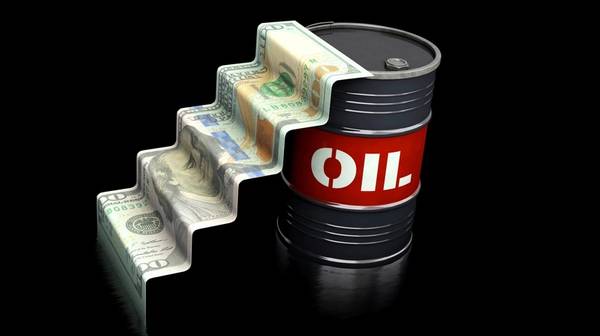
Oil prices surged on Monday, posting the biggest daily rise in nearly a year, after a surprise announcement by OPEC+ to cut more production jolted markets.
Brent crude was trading at $83.89 a barrel by 0627 GMT, up $4, or 5%, after touching the highest in a month at $86.44 earlier in the session.
U.S. West Texas Intermediate crude was at $79.39 a barrel, also up about $4, or 5%, after earlier hitting the highest level since late January.
The Organization of the Petroleum Exporting Countries and their allies including Russia shook markets by announcing further production cuts of about 1.16 million barrels per day (bpd) on Sunday.
The group, known as OPEC+, had been expected to maintain its earlier decision to cut output by 2 million bpd until December at its monthly meeting on Monday.
The pledges bring the total volume of cuts by OPEC+ to 3.66 million bpd according to Reuters calculations, equal to 3.7% of global demand.
As a result, Goldman Sachs lowered its end-2023 production forecast for OPEC+ by 1.1 million bpd and raised its Brent price forecasts to $95 and $100 a barrel for 2023 and 2024, respectively, its analysts said in a note.
Goldman Sachs estimated the output reduction could provide a 7% boost to oil prices, contributing to higher Saudi and OPEC+ oil revenues.
The Biden administration said the move announced by the producers was unwise.
Some analysts questioned OPEC+'s rationale for the extra production cut.
"It's hard to buy the 'pre-emptive' and 'precautionary' reasoning - especially now, when the banking crisis had tailed off and Brent had crawled back up towards $80 from its 15-month lows earlier in March," said Vandana Hari, founder of oil market analysis provider Vanda Insights.
Brent fell last month towards $70 a barrel, the lowest in 15 months, on concerns that a global banking crisis and rising interest rates would hit demand despite lower OPEC oil output in March due to oilfield maintenance in Angola and a halt in some of Iraq's exports.
"Today's move, like the October cut, can be read as another clear signal that Saudi Arabia and its OPEC partners will seek to short circuit further macro sell-offs and that Jay (Jerome) Powell is not the only central banker that matters," RBC Capital Markets analyst Helima Croft said.
"The bottom line is Washington and Riyadh simply have different price targets for their key policy initiatives."
Analysts at JPMorgan said the move came later than they had expected and the slow response to weaker prices would have a limited impact on supply-demand balances and could delay the effect on prices.
"Since November our global oil supply-demand balance suggested a strong policy action was needed to keep global oil surpluses in check," they said.
U.S. crude production rose in January to 12.46 million barrels per day (bpd), the highest since March 2020, Energy Information Administration (EIA) data showed on Friday.
OPEC+ production cut effect on oil price https://tmsnrt.rs/3nEOi2p
Brent crude price still lower year till date https://tmsnrt.rs/40Tjr0b
(Reuters - Reporting by Mohi Narayan in New Delhi and Florence Tan in Singapore; Editing by Lincoln Feast, Sonali Paul and Jamie Freed)